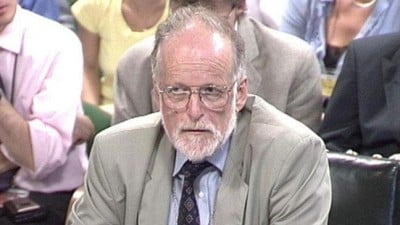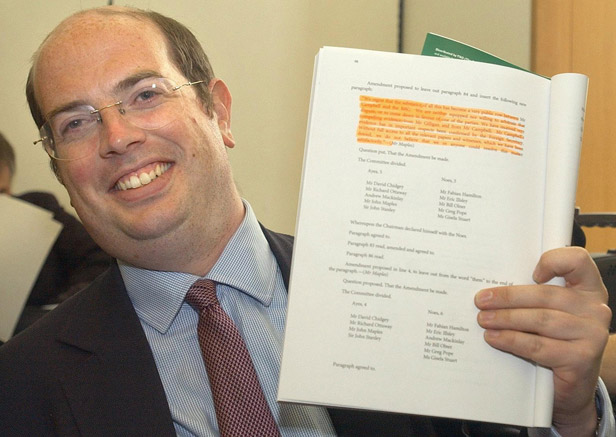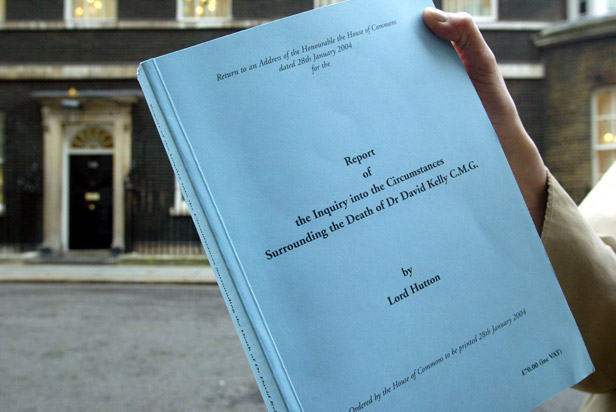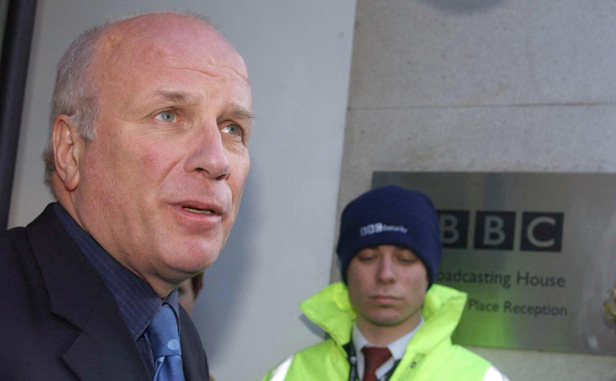July 18, 2003: Death of Weapons Expert Dr David Kelly Plunges BBC – and Blair – into Crisis

The body of scientist and biological weapons expert Dr David Kelly – the source of a BBC report claiming the government had ‘sexed up’ their intelligence dossier on Iraq’s weapons of mass destruction – was discovered in a wood near his Oxfordshire home on this day in 2003.
Dr Kelly, a Ministry of Defence advisor and former United Nations weapons inspector, had been reported missing shortly after midnight by his wife. He was found early the next morning; a knife and three empty packets of painkillers were found near his body.
His name had become linked with a report by journalist Andrew Gilligan, broadcast on the BBC’s Today programme, which suggested the government had fabricated the intelligence dossier’s claim that Saddam Hussein was capable of deploying weapons of mass destruction within 45 minutes.
Dr Kelly had met and spoken to Gilligan (pictured above) on an unattributable basis; the journalist would later claim that Kelly had told him the fabrication was the suggestion of Alastair Campbell, Prime Minister Tony Blair’s director of communications.
Kelly had appeared before the Foreign Affairs select committee three days earlier to answer questions on the report, and was forcefully cross-examined by committee members. He had been upset at his treatment, although they had concluded he was not Gilligan’s main source.
A Ministry of Defence spokesman revealed that Kelly been reprimanded for having unauthorised contact with a journalist, which was against departmental rules, but had not been threatened with suspension or dismissal.
As Mr Blair stepped off a plane in Tokyo, he expressed his sympathy with Dr Kelly’s family and announced that an inquiry would be held into the circumstances surrounding the scientist’s death.
The inquiry, headed by Lord Hutton, would eventually report in January 2004. It said that Dr Kelly had committed suicide but absolved any person or organisation of putting an amount of pressure on the scientist that could have reasonably been expected to result in him taking his own life.
The death of Dr David Kelly – Did you know?
- Andrew Gilligan subsequently asserted that Dr Kelly had told him intelligence services were unhappy with the 45-minute claim, but not that the government probably knew it was wrong.
- When the Ministry of Defence publicly acknowledged a staff member had come forward to them to say they had met Gilligan, they put enough clues in their statement for any interested party to work out that they referred to Kelly.
- Major General Michael Laurie, the head of the Defence Intelligence Staff at the time of the dossier, said: “It was clear to me that pressure was being applied to the Joint Intelligence Committee and its drafters. Every fact was ‘managed’ to make the dossier as strong as possible.”
- It was later proved that Alastair Campbell had directed an earlier dossier to be amended to reflect US claims on Iraq’s weapons capabilities.
- The Hutton Inquiry would hear from Dr Kelly’s widow Janice that he was “dejected” after being dragged into the media spotlight, and had seemed “heartbroken” on the day he disappeared.
- The inquiry was dismissed as a ‘whitewash’ by some sources, laying most of the blame at the door of the BBC. Chairman Gavyn Davies tendered his resignation, as did director general Greg Dyke (above) and Gilligan.
- Some medical experts (and later, some publications) raised doubts over the suicide, saying a cut ulnar artery would not result in sufficient blood loss to cause death. It was then revealed that Dr Kelly had a rare heart defect that could have contributed to his death.
- Under pressure from political, medical and journalistic sources, Dr Kelly’s postmortem was made public by the coalition government in October 2010. Pathologist Dr Nicholas Hunt’s conclusions matched those of Lord Hutton’s inquiry.




